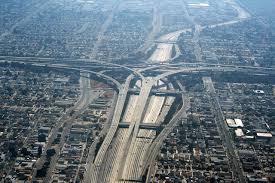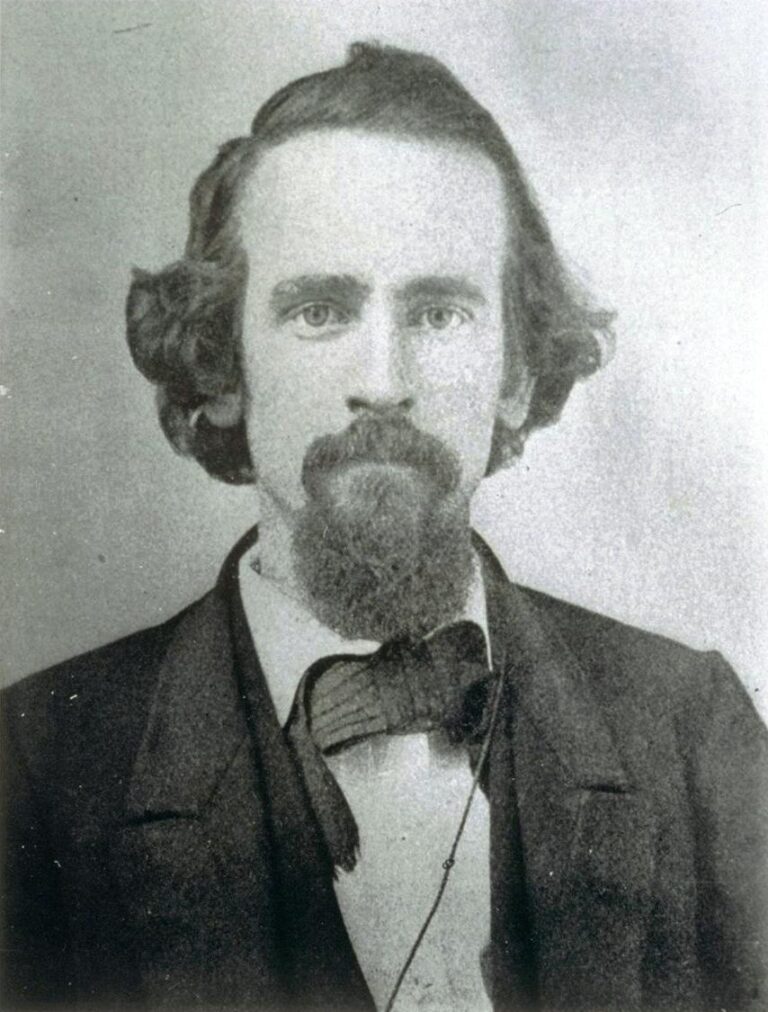Physical Address
304 North Cardinal St.
Dorchester Center, MA 02124
Physical Address
304 North Cardinal St.
Dorchester Center, MA 02124

In my last article, I wrote about how an economically and culturally vital city is able, without central planning, to generate two things that are essential to the city’s success: diversity and cohesion. I argued that when lots of people who reflect a huge range of skills and tastes can live together peacefully (diversity) and when they feel free to associate to any degree they choose (cohesion), the result tends to be rich, complex, and dynamic social networks that channel information from person to person rapidly and effectively. For many who hear this argument, however, how this happens remains a mystery. And I don’t blame them for feeling that way. Some urban economists and urban sociologists explain this in terms of “knowledge spillovers.” Proximity enables people who are socially distant to mingle and exchange ideas; the image of chance meetings and chatting up over coffee or a beer comes to mind. Sometimes it does happen that way. Many of the innovators in Silicon Valley in the 1960s, for example, informally traded ideas at the famed Wagon Wheel bar. The term “spillover” evokes this informality over the occasional sloshed mug of beer (or sloshed patron). Social Media: Complement or Substitute? I listened to an interview recently with urban economist Edward Glaeser of Harvard University on Russ Roberts’ podcast, Econtalk. The main topic was the recent declaration of bankruptcy by the Detroit city government, but the discussion also touched on more basic issues such as why people still need to live in cities. Some of my colleagues argue, for example, that face-to-face interactions are becoming obsolete with technical advances such as Facebook, Skype, and email. Back in the early twentieth century, as the telephone spread to more and more homes, pundits at the time—among them the architect Frank Lloyd Wright—claimed that science would “obliterate distance” […]

Suburbs have been around for as long as there have been urbs – cities, that is – a fact Robert Bruegmann reminds us of in his excellent book Sprawl. And as sociologist Max Weber in The City and historian Henri Pirenne in Medieval Cities remind us, it’s often in the younger, freer suburbs rather than the older, more-conservative central city where entrepreneurial energy is unleashed. The difference today perhaps is that the epithet “sprawl” has been attached to this sort of outward, penumbral development, which, especially in the United States, has taken place very rapidly since World War II. Stripping it of its negative connotations, Bruegmann defines sprawl as “low density, scattered, urban development without systematic large-scale or regional public land-use planning.” A Sprawling Debate There has been a lot of Internet chatter lately about what libertarians ought to think about urban sprawl and its causes, including pieces by Kevin Carson, Austin Bramwell, Randal O’Toole, and Matthew Yglesias. The title of Ben Adler’s post basically sums it up: “If You Love the Free Market, You Should Hate Mandated Suburban Sprawl.” All seems to be centered on O’Toole’s recent comments on John Stossel’s program on Fox Business, which evidently defended urban sprawl against advocates of so-called “Smart Growth,” government policies intended to combat sprawl and its alleged bad consequences. I have not yet seen the show myself, so I’m really just responding here to the interesting reactions it has provoked. (I will perhaps explore the issue of whether sprawl is a good thing or a bad thing in another column.) On the one side are those, such as O’Toole, who hold that suburban sprawl is chiefly a free-market phenomenon and therefore an expression of consumer demand, and on the other are those, such as Yglesias and myself, who look at the […]

This week’s column is drawn from a lecture I gave at the University of Southern California on the occasion of the retirement of urban economist Peter Gordon. One of my heroes is the urbanist Jane Jacobs, who taught me to appreciate the importance for entrepreneurial development of how public spaces—places where you expect to encounter strangers—are designed. And I learned from her that the more precise and comprehensive your image of a city is, the less likely that the place you’re imagining really is a city. Jacobs grasped as well as any Austrian economist that complex social orders such as cities aren’t deliberately created and that they can’t be. They arise largely unplanned from the interaction of many people and many minds. In much the same way that Ludwig von Mises and F. A. Hayek understood the limits of government planning and design in the macroeconomy, Jacobs understood the limits of government planning and the design of public spaces for a living city, and that if governments ignore those limits, bad consequences will follow. Planning as taxidermy Austrians use the term “spontaneous order” to describe the complex patterns of social interaction that arise unplanned when many minds interact. Examples of spontaneous order include markets, money, language, culture, and living cities great and small. In her The Economy of Cities, Jacobs defines a living city as “a settlement that generates its economic growth from its own local economy.” Living cities are hotbeds of creativity and they drive economic development. There is a phrase she uses in her great work, The Life and Death of Great American Cities, that captures her attitude: “A city cannot be a work of art.” As she goes on to explain: Artists, whatever their medium, make selections from the abounding materials of life, and organize these selections into works […]

Henry George and Jane Jacobs each have an enthusiastic following today, including, I’m sure, some readers of The Freeman. For those who might not know, Henry George is the late-19th-century American intellectual best known for his proposal of a “single tax” from which he believed the government could finance all its projects. He advocated eliminating all taxes except that on the rent of the unimproved portion of land. He viewed that rent as unjust and solely the result of general economic progress unrelated to the actions of landowners. Jane Jacobs, writing about one hundred years later, is an American intellectual best known for her harsh and incisive criticism of the heavy-handed urban planning of her day. She advised ambitious urban planners to first understand the microfoundations of urban processes — street life, social networks, entrepreneurship — before trying to impose their visions of an ideal city. Much has been written, pro and con, on George’s single tax and also on Jacobs’s battles with planners the likes of Robert Moses, and if you’re interested in those issues you can start with the links provided in this article. Here I would like to contrast their views on the nature of economic progress and the significance of cities in that progress. Some interesting parallels There are some interesting parallels between George and Jacobs. Both were public intellectuals who rebelled against mainstream economic thinking — for George it was classical economics, for Jacobs neoclassical economics. Both had a firm grasp of how markets work, were critical of crony capitalism, and concerned with the problems of “the common man.” And both established their reputations outside of academia. George was a strong advocate for free trade and an opponent of protectionism. He also understood Adam Smith’s explanation of the invisible hand. As George writes in […]

People sometimes support regulations, often with the best of intentions, but these wind up creating outcomes they don’t like. Land-use regulations are a prime example. My colleague Emily Washington and I are reviewing the literature on how land-use regulations disproportionately raise the cost of real estate for the poor. I’d like to share a few of our findings with you. Zoning One kind of regulation that was actually intended to harm the poor, and especially poor minorities, was zoning. The ostensible reason for zoning was to address unhealthy conditions in cities by functionally separating land uses, which is called “exclusionary zoning.” But prior to passage of the Civil Rights Act of 1968, some municipalities had race-based exclusionary land-use regulations. Early in the 20th century, several California cities masked their racist intent by specifically excluding laundry businesses, predominantly Chinese owned, from certain areas of the cities. Today, of course, explicitly race-based, exclusionary zoning policies are illegal. But some zoning regulations nevertheless price certain demographics out of particular neighborhoods by forbidding multifamily dwellings, which are more affordable to low- or middle-income individuals. When the government artificially separates land uses and forbids building certain kinds of residences in entire districts, it restricts the supply of housing and increases the cost of the land, and the price of housing reflects those restrictions. Moreover, when cities implement zoning rules that make it difficult to secure permits to build new housing, land that is already developed becomes more valuable because you no longer need a permit. The demand for such developed land is therefore artificially higher, and that again raises its price. Minimum lot sizes Other things equal, the larger the lot, the more you’ll pay for it. Regulations that specify minimum lot sizes — that say you can’t build on land smaller than that minimum […]

If you restrict the supply of housing, other things equal, what will happen to the price? That’s not a trick question. Any competent Econ 101 student would answer correctly that the price will rise. One reporter for the Washington Post gets it. In a hopeful sign of spreading economic literacy, Emily Badger writes: In tight markets, poor and middle-class households are forced to compete with each other for scarce homes. And so new market-rate housing eases that competition, even if the poor aren’t the ones living in it. Over time, new housing also filters down to the more affordable supply, because housing becomes less desirable as it ages. That means the luxury housing we’re building today will contribute to the middle-class supply 30 years from now; it means today’s middle-class housing was luxury housing 30 years ago. Typical critics of soaring housing prices have a much harder time grasping this. They don’t see that zoning rules and restrictions meant to make urban life more “livable” (often for the well-established homeowner) reduce supply and put strong upward pressure on prices. Minimum lot sizes, maximum density restrictions, minimum parking requirements, and so on all contribute to reducing the supply. And it raises prices not only for the wealthy, but also for middle- and lower- income families, as well. Instead, they think that new construction of market-rate housing is somehow the source of the problem, rather than a solution. (Emily Washington and I recently published a useful summary of the literature on the regressive effects of land-use regulation.) Ever wonder how ordinary people could afford to live in major cities before there were rent controls and land-use regulations? Builders built wherever it was the most profitable. The middle-incomers didn’t have to compete with the wealthy for middle-income housing, and the poor then didn’t have to compete with the middle-incomers for low-priced […]

[Editors note: Sandy Ikeda was an original Market Urbanism writer and is now a regular columnist for the Foundation for Economic Education, or FEE.org. FEE has offered republishing rights, so Sandy’s past work will be appearing here every Tuesday at 10am eastern time] People sometimes argue that we need substantial housing subsidies in some very expensive cities because “the cost of building new housing is greater than what most people can afford.” It’s certainly true that families earning low or moderate incomes have a hard time buying or renting brand-new housing. But that’s not only the case today; it’s been true throughout the history of civilization, from Uruk to New York. The ABCs of Housing The housing market is subject to the same forces of supply and demand as any other market, although of course there are things that distinguish it from, say, the market for fast-food. For instance, unlike a hamburger, a house is durable: it’s not consumed all at once. It also depreciates: the average house in the United States, for example, has a useful life of about forty to sixty years before major renovations become necessary. Let’s say there are 3 categories of housing – A, luxury housing; B, middle-income housing; and C, low-income housing – and that houses are continuously built, age, and wear down. In the real world there are of course many more than 3 categories but let’s assume for simplicity that there are only these three. Now, this is very much like the market for automobiles, which are also durable. In the new-car market you have at the high-end the Mercedes S-Class Sedan, while at the low-end the Ford Fiesta, and in the middle there’s the Honda Accord. And within each category there’s an array of prices depending on initial quality, age, and […]
by Sandy Ikeda The other day I was lecturing to my students about externalities and the Coase Theorem. One of the examples I used came directly from the our textbook – Heyne, Boettke, & Prychitko’s The Economic Way of Thinking. It asks what would happen if you tried to declare a large tree in your neighbor’s backyard a landmark in order to prevent her from chopping it down and depriving you of the valuable shade it casts into your backyard. The answer is that it gives her an incentive to chop the tree down much sooner, before the landmarking can go through. It turns out that that’s exactly what some landlords in New York have been doing to avoid the severe building constraints imposed by the city’s Landmarks Preservation Law. Of course they use jackhammers instead of chain saws, but the principle is the same. According to this front-page article in today’s (Saturday 29 November) The New York Times: Hours before the sun came up on a cool October morning in 2006, people living near the Dakota Stables on the Upper West Side were suddenly awakened by the sound of a jackhammer. Soon word spread that a demolition crew was hacking away at the brick cornices of the stables, an 1894 Romanesque Revival building, on Amsterdam Avenue at 77th Street, that once housed horses and carriages but had long served as a parking garage. In just four days the New York City Landmarks Preservation Commission was to hold a public hearing on pleas dating back 20 years to designate the low-rise building, with its round-arched windows and serpentine ornamentation, as a historic landmark. (Hat tip to “The Volokh Conspiracy” via Mario Rizzo.) Now, regulations and private exchanges both have unintended consequences. The difference is that the latter represent opportunities that […]
By Sandy Ikeda Last week I spoke to a standing-room-only crowd of students and faculty about the current economic and financial turmoil. I shared the podium with three of my colleagues, who range all the way from far to the left of Barack Obama to very, very far to the left of Barack Obama. Needless to say, they all blamed, to a greater or an even greater degree, “the free market.” Now, I do think it’s possible in principle for wide-spread mal-investments to occur in an unfettered market. (F.A. Hayek writes about the possibility in his Monetary Theory and the Trade Cycle, which you can read online here.) But enormous speculative bubbles, of the sort we’ve just witnessed in the housing market, are typically the result of government interventions and policies. So in my talk on this highly complex issue I tried to make three points: (1) the immediate cause of the financial panic on Wall Street was the housing bubble with its sudden rise in mortgage defaults; (2) the free market, which stands for minimal government and the absence of privilege or discrimination, did not create this bubble; and (3) government (and Fed) policy and pressure did, by undermining lending standards across the board and pushing lending rates artificially low. This blog has already referenced Russell Roberts’s fine collection of blog posts on the problem, and if you’re already familiar with the issues then obviously there will be nothing new here for you. But I think it might be useful to have a list of “names and dates” that make the above case. The following is not meant to be exhaustive (e.g., it doesn’t even mention important international factors), but is only an outline of the major legislation and policies relevant to the housing bubble. (Caveat: My expertise in […]